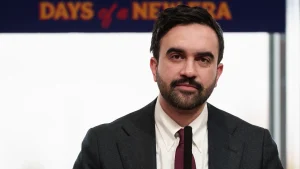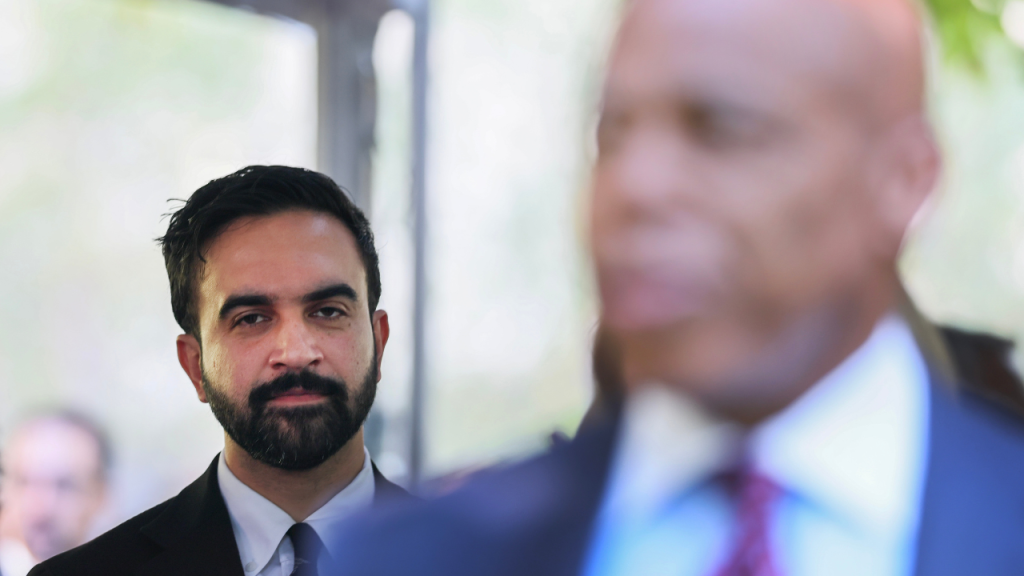The Shifting Landscape of New York City’s Mayoral Race
In a stunning development that has reshaped New York City’s political landscape, Mayor Eric Adams announced the end of his reelection campaign on Sunday through a nearly nine-minute video posted on social media. Adams, who has faced mounting legal challenges in recent months, offered no indication about his future plans after leaving office and notably did not endorse any of the remaining candidates vying to become the city’s next leader. His abrupt departure has created a vacuum in the race that various contenders are now rushing to fill, each positioning themselves as the best alternative for voters seeking new leadership in America’s largest city.
The clear beneficiary of Adams’ withdrawal appears to be Zohran Mamdani, a democratic socialist who now stands as the frontrunner according to recent polling data. Mamdani wasted no time framing the moment as a significant turning point for the city, declaring that New Yorkers would soon “turn the page on the politics of big money and small ideas.” In a pointed statement that seemed to reference both Adams and former Governor Andrew Cuomo (who has been mentioned as a potential late entry to the race), Mamdani asserted that “Donald Trump and his billionaire donors might be able to determine Eric Adams and Andrew Cuomo’s actions but they will not dictate the results of this election.” His campaign has seized upon the opportunity to position him as the candidate of genuine change in a city that has experienced significant challenges with housing affordability, public safety concerns, and recovery from the economic impacts of the COVID-19 pandemic.
Republican candidate Curtis Sliwa’s campaign immediately moved to position him as the strongest challenger to prevent a Mamdani victory, highlighting the resources and organizational strength they believe will make the difference in November. Campaign spokesperson Daniel Kurzyna emphasized in a statement that “Curtis Sliwa is the only candidate who can defeat Mamdani. Our team, our resources, and our funding are unmatched.” The Sliwa campaign further stressed their focus on practical solutions for working-class New Yorkers, particularly around affordability and public safety – two issues that continue to rank highly among voter concerns. As the field reshuffles following Adams’ departure, Sliwa hopes to consolidate support from moderate voters who may be hesitant about Mamdani’s progressive platform.
The reactions from established political figures have been measured and deliberate, with many acknowledging Adams’ service while carefully avoiding immediate endorsements in the reconfigured race. Former Governor Andrew Cuomo praised Adams for putting “the well-being of New York City ahead of personal ambition,” calling the mayor’s story “undeniably one of resilience, a testament to the spirit of this city.” This gracious statement comes amid speculation that Cuomo himself might consider entering the mayoral contest, though he has not made any formal announcements. His comments reflect the complex relationships within New York’s political ecosystem, where today’s rivals can quickly become tomorrow’s allies as circumstances evolve.
Federal and state leaders have similarly responded with cautious appreciation for Adams’ service while keeping their options open regarding the remaining candidates. House Minority Leader Hakeem Jeffries, a powerful Democratic voice from New York, thanked Adams and highlighted achievements during his tenure, noting that “violent crime is down, the building of affordable housing units is up and New York City has recovered from the COVID-19 pandemic.” However, Jeffries indicated he would wait before making any endorsement, promising to “publicly weigh in” before early voting begins. His approach underscores the high stakes of this election for Democratic leadership, who must navigate between the party’s progressive and moderate wings while ensuring continued Democratic control of City Hall.
New York Governor Kathy Hochul also issued a statement praising her working relationship with Adams, saying she had been “proud to work alongside Adams to make New York City safer, stronger, and more affordable.” Her acknowledgment that Adams “leaves New York City better than he inherited it” offers a positive framing of his abbreviated tenure during a time of unprecedented challenges. As the mayoral race enters this new phase without the incumbent, voters will be looking closely at how candidates address the city’s persistent issues – from public safety and housing affordability to education and infrastructure – while also offering a vision that can unite New York’s diverse communities. With early voting approaching and political alliances shifting, the coming weeks promise intense campaigning as contenders vie to lead America’s most populous city through its next chapter.















